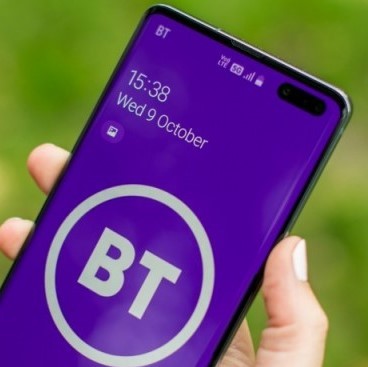Eurobites: BT rejects reports of boardroom rift
Also in today's EMEA regional roundup: Nokia lands LTE deal with Denmark's Cibicom; MLL Telecom fires up SD-WAN; Hyperoptic on the post-pandemic home.

Also in today's EMEA regional roundup: Nokia lands LTE deal with Denmark's Cibicom; MLL Telecom fires up SD-WAN; Hyperoptic on the post-pandemic home.
BT has felt the need to issue a statement rebutting a report by Sky News that a CEO Philip Jansen had demanded boardroom colleagues remove chairman Jan du Plessis due to frustration over the pace of change at the operator. According to the report, Jansen let it be known that he was prepared to resign if du Plessis – who is leaving BT – stayed put. In its statement, BT maintained that du Plessis had "demonstrated strong leadership of the company," adding that there has been "no misalignment between the board and executive and the management over the company's strategy." (See Eurobites: Jan du Plessis to step down as BT chairman, Eurobites: Worldpay's Jansen Lands BT Top Job, BT Waves Goodbye to Gorgeous Gavin.)
Nokia has landed a new 450MHz LTE network deal with Cibicom, a Danish operator and ISP specializing in the supply of business-critical infrastructure to the likes of utilities and transportation companies. The contract sees Nokia replacing the existing Cibicom radio networks and migrating them to a new framework that will enable full 4G data coverage across Denmark, as well as mass-volume IoT connectivity. Private households in neighboring Greenland should also benefit from improved connectivity once the project is complete.
MLL Telecom, a provider of secure managed network services to the UK public sector, has won the contract to supply the Scottish Fire and Rescue Service (SFRS) with a nationwide SD-WAN, replacing its legacy IPVPN WAN from Virgin Media. The new network will connect more than 360 fire stations throughout the country. The contract runs for four years, with SFRS having the option to extend.
UK altnet Hyperoptic has been giving some thought to how homes, and in particular the way in which homes relate to people's work, will change in the post-pandemic era. Its white paper, The Post-Pandemic Home, concludes that with almost half of Brits saying they want to continue to work from home full-time even when it's considered safe for them to return to the office, the configuration of properties will change, with bedrooms, for example, being more easily convertible to workspaces through the use of folding desks and such. Apartment sizes may, says Hyperoptic, shrink further to create more shared amenity space to support co-working. On a more prosaic level, the fiber provider predicts that washing machines will increasingly be relocated out of people's kitchens so that the final spin cycle doesn't makes its presence felt on that work Zoom call.
Lycamobile, a London-based MVNO specializing in international prepaid calls, has appointed Phil Turner as its executive vice president of professional channel sales. Turner has 30 years' experience across a range of retail sectors.
Today is International Women's Day, and Vodafone is marking the occasion by launching a "global commitment" to ensure its employees are supported during the menopause. The company has published new research which found that nearly two-thirds of women (62%) who experienced menopause symptoms said that this affected them at work, though this figure rose to four in five (79%) for the 18 to 44 age group. With this in mind, Vodafone will roll out a training and awareness program to all employees globally, including a "toolkit" focused on raising understanding of the menopause and providing guidance on how to support employees, colleagues and family members affected by it.
— Paul Rainford, Assistant Editor, Europe, Light Reading
Read more about:
EuropeAbout the Author(s)
You May Also Like




.jpg?width=300&auto=webp&quality=80&disable=upscale)







